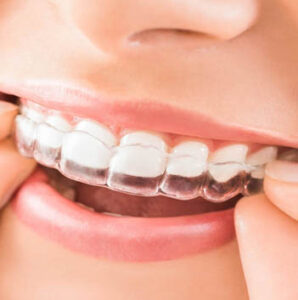Understanding the Cost of Dental Implants

Dental implants offer a lifelike alternative to dentures or bridges. But before you pursue this treatment option, you need to understand the costs.
The cost of dental implants can vary a lot for different reasons. The type of implant, whether it needs a bone graft or sinus lift, and the cost of anesthesia are all important factors.
Costs of Implants
Implants are more expensive than dentures or other tooth replacements, but they last much longer and offer other benefits that make them a worthwhile investment. For example, implants help you maintain a healthy bite and prevent bone loss that can lead to other dental problems.
The cost of a single implant varies, but it generally includes the surgical procedure and the restoration. The type of implant used will also impact the price, as will whether or not it requires a bone graft to prepare the mouth for surgery.
You’ll also pay for X-rays and other diagnostic imaging, and you might need moderate or extensive sedation, which will cost more than light sedation. The materials used to make the implant post, abutment, and dental crown will affect the price. Higher-quality materials are usually more expensive.
Some dentists advertise low prices for implants, but these ads often leave out costs like abutment placement or implant placement anesthesia, so they may not be completely accurate. You should research dentists and clinics carefully to find a trustworthy price.
Costs of Bone Grafting
Bone grafts are typically required to prepare the site of an implant for insertion. The procedure repairs and replaces existing bone, promotes new bone growth and helps ensure that the implant post has adequate strength and support. It also improves facial structure, reduces gum disease and other oral health issues and provides an improved esthetic appearance.
During the consultation process, the dentist will evaluate your teeth and gums and determine whether or not you require a bone graft before proceeding with dental implants. They will then produce a bespoke treatment plan, including costs and a timeline for your treatment.
The cost of a bone graft will vary depending on where the bone is sourced from and the extent of the work that needs to be done. It is often cheaper to use synthetic or other sources of bone than your own bone, but this will be reflected in the price you are quoted. A barrier membrane will also be added to the site – this can be either resorbable or non-resorbable.
Costs of Implant Restorations
Dental implants cost more than traditional tooth replacement solutions, but they can provide a lifetime of benefits. Many dental implant patients see them as an investment in their oral and physical health, self-esteem, and quality of life.
Many of the costs associated with a dental implant procedure are standard across providers, but some of them can vary. Some factors can include the type of dental implant, whether it’s standard or mini, and whether it’s made from titanium or another material. The type of restorations placed on the implant can also impact cost.
Some implant treatments require supplemental procedures such as bone grafts, which can increase the overall cost of the procedure. Patients may also need to schedule follow-up appointments for care, which can add up. Dental insurance typically only covers a yearly maximum of $1,500 for implant treatment. Dental practices often offer financing options for those who cannot pay for their procedures out of pocket.
Costs of Anesthesia
Many patients who are missing several or all of their teeth choose dental implants to restore their oral health and confidence. For these patients, dental implants offer a solution that avoids the discomfort, slipping, shifting and food restrictions associated with traditional removable dentures.
Because dental implants are surgical procedures, they require the use of anesthesia and sedation. Because these services are billed separately, they can add to the overall cost of the implant procedure.
Additionally, patients who need a bone graft or a sinus lift are likely to incur extra costs due to the surgery itself as well as the delay of the implant schedule while the graft site heals. Finally, the quality of the dentist will also impact the cost of anesthesia.
A more reputable implant specialist with extensive experience will typically charge more than a general dentist. This is because they have a higher level of skill and are in greater demand. The result is that they will be able to provide more reliable results.







